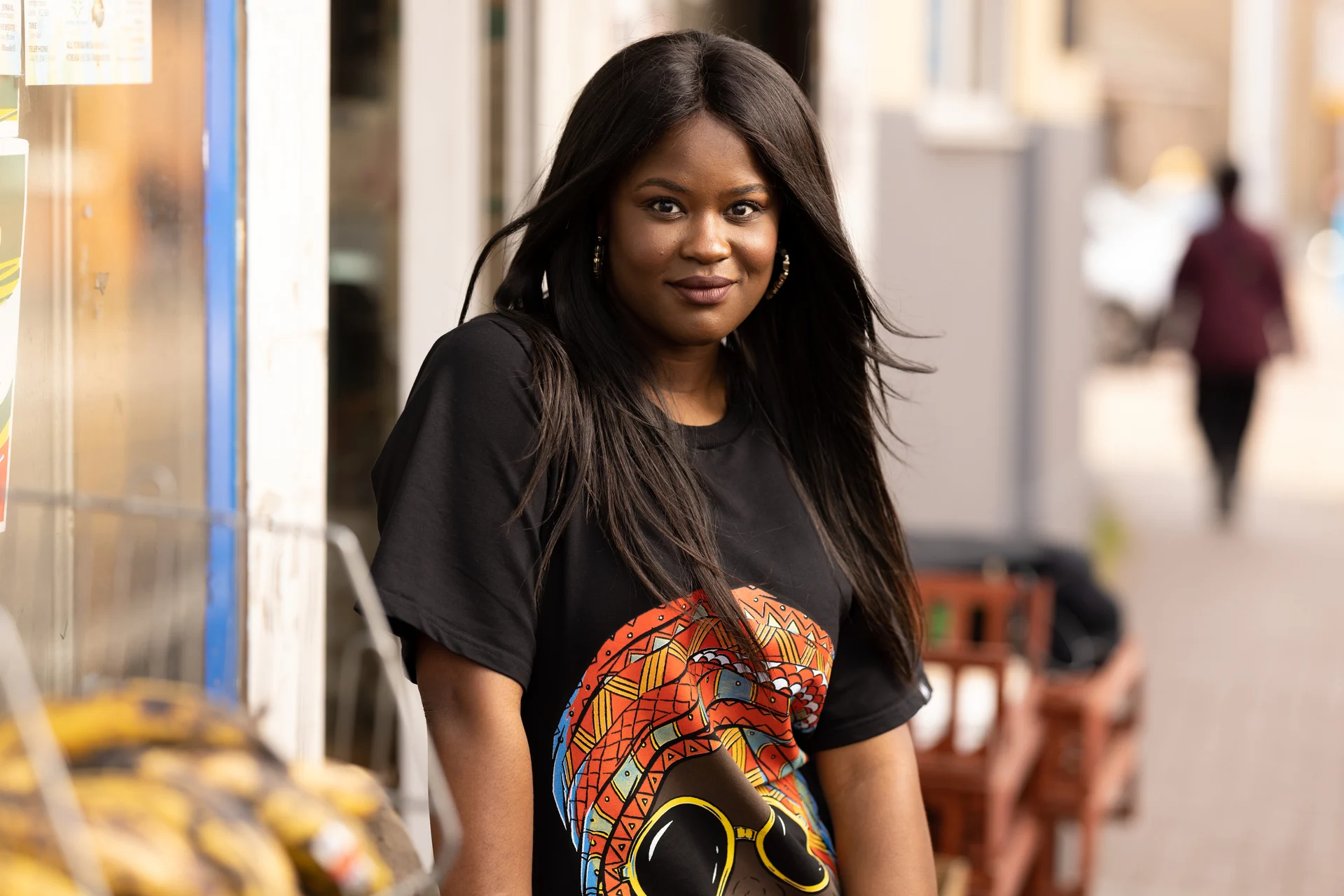
"The Nigerian spirit is very powerful. We have tenacity, passion, and unbridled joy."
Kemi Aofolaju
Communications and Events Officer, Department of Bioengineering
Embracing my Blackness
I joined Imperial in May 2016, having moved to the UK at the age of six from Lagos in Nigeria. Sadly, my Dad passed away while I was studying Drama at Queen Mary University of London. It was a really difficult time, but the staff at my university were so amazing and supportive that they inspired me to work in higher education .
Culture is very important to me – I don’t believe in being colour blind. But to be honest, sometimes I used to pretend I wasn’t Nigerian. I struggled to fit in and didn't have friends until I was about ten. When I was in year three, one teacher used to laugh at my hair and my teeth (some Black people have darker gums due to having more melanin). I equated my Blackness with being less lovable, and I felt this way until I started embracing my Blackness during sixth form.
When I'm in a bad place, I listen to Afrobeats – it’s like pouring sunshine in your ears.
My secondary school specialised in performing arts and humanities, and my love for performing started taking shape – I’m now in a cover band with colleagues called The Gastric Band. Musicality is in the bones of every Nigerian, and honestly, music has saved me! One thing I love about being around Nigerians is that if someone starts to sing, everyone will begin harmonising! When I'm in a bad place, I listen to Afrobeats – it’s like pouring sunshine in your ears.
Nigerian excellence and pride
I’m very British, but my heart and soul are Nigerian. The Nigerian spirit is very powerful. We have tenacity, passion and unbridled joy, and have navigated so many different things with excellence and pride.
It’s been tough to figure out how to be no-nonsense without seeming aggressive.
There’s also a different type of respect in Nigerian culture. I was raised never to give an elder something with my left hand as it was seen as disrespectful. Prayers are said over people, the mixing of food, speaking in Yoruba and Igbo. Also, Nigerian food slaps! Jollof rice and pounded yam – it's so filling, flavorsome and tasty.
In the workplace, it's hard to not feel like you represent your entire race. But I’m working to educate others, pull others up on their ignorance, and not accept discrimination or inaction.
I have experienced a lot of racism in this country, for example, a member of staff once said to me that all Black women are rude. I called them out on this, but if we stand up for ourselves too much, we’re seen as rude. It’s been tough to figure out how to be no-nonsense without seeming aggressive.
Oppressed people shouldn't fix the problems
Black people were hurting after the murders of George Floyd and Breonna Taylor – we didn’t feel safe. But seeing the inception of Imperial’s Black Doctoral Network and De-Shaine Murray's work to build this community and a network of Black students to help and uplift one another is just wonderful.
I do often feel like I’m trying to present a certain side of myself that isn’t real when at Imperial.
I have a group of African colleagues and my friends Gifty and Daze used to meet up for lunch and we’d just be us, able to use cultural phrases and dialect in that space. Sometimes on campus, you can feel like you’re alone, so having these friendships has been brilliant.
I do often feel like I’m trying to present a certain side of myself that isn’t real when at Imperial – I was worried that racists might see me as bringing down the prestige of the institution. People have said racist things around me and when I complained, it didn’t feel like I had much support.
It’s problematic that, as a society, we ask those who are oppressed to fix the problems, but people have also said to me I don’t have enough experience to join equality, diversity, and inclusion committees, and I doubt white staff would be treated that way.
Imperial must listen to us
I also didn’t feel there were many Black people at Imperial, which was alienating, but it got me thinking: “what can I do to reach out to those who are Black members of the community and how do I express my Nigerian culture?” Taking part in the IMPACT development programme was great as it helped me find other people of colour to befriend and to know that we are out there!
The best communities and institutions are the places that have diversity at every level.
Imperial is blessed to have the Black staff that it does and needs to listen to us. From the bottom to the top, there needs to be more Black people in the community, whether that’s staff or students. We need to be visible. And we need to see a zero-tolerance approach against racist speech and racist action.
The best communities and institutions are the places that have diversity at every level. Imperial needs to push for this as it will only better the community.
Kemi shares her story as part of Shifting the Lens: a celebration of cultural diversity at Imperial.
This interview was edited by Martha Salhotra and Cecily Sheppard and photographed by Jason Alden.